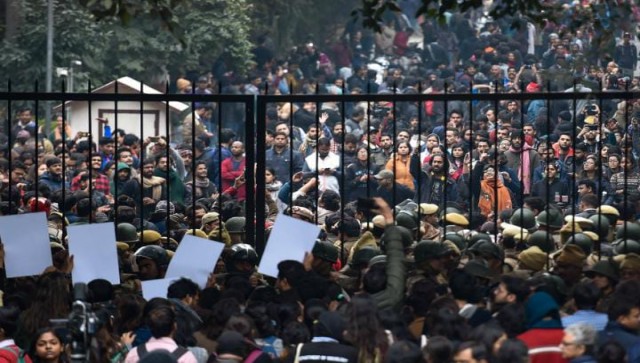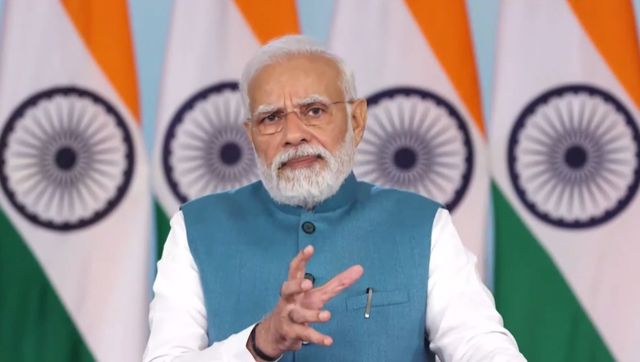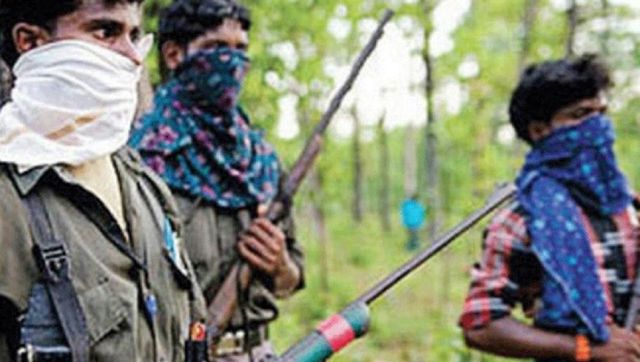In the heat and dust of Delhi’s blistering summer of April 1972, Sagar Deb, then an engineering student, waited for a person he had never met, at a bus stand in the congested Patel Nagar neighbourhood.
Deb, then 19, was perspiring profusely, shirt totally soaked. He had been there for more than an hour, the wait becoming a bit unbearable.
Deb was on duty for his party, he was drawn in by the romance of the revolution and became a member of the Delhi Unit of the CPI(ML), the outlawed Naxalite wing of the Communist Party. He routinely kept cartons of Liberation, a banned news monthly produced by the CPI(ML) under his bed unlike his classmates who read Debonair, a semi-porn newsmagazine. His room was covered with the chalked sayings of Mao.
Deb, who considered himself a party loyalist, was told by his leaders that he would be soon sent for a top mission. And it would be to escort a person to a hideout in the city. True to the party’s style and command, Deb did not ask who he had to escort. He had a feeling the person was important.
And then he saw a frail person walking up to him. Wearing crumpled pyjamas and round collared Khadi kurta, the person had an enigmatic smile. He came close and asked Deb: “Sagar?” Deb nodded, pleasantries evaporated within seconds as he started walking with the person. Deb had a small piece of paper in his hand, an address scribbled in English. He had to find the address, and take the unknown person to that destination.
Deb did not talk much, though the person, in his late 50s, initiated a conversation, asking Deb what did he do. On knowing Deb was an engineering student, the person looked impressed and asked Deb how many of his friends believed in the Naxalite movement, and whether they felt it could eventually be the incubator of India’s epic class war.
“I told him there were many with me, and they all believed in the ideology. The person listened patiently.”
“I wanted to ask him how is it that the genesis of the Naxalite movement was in this peculiar, un-disciplined, violent quality which all Bengalis seem to share? I wanted to ask him what did he do to mobilise the masses,” says Deb.
Deb talked a bit, wondering who this person was and why the party was extremely secretive about him. And why, he was told repeatedly by numerous leaders in Delhi that this was “life’s biggest assignment”.
Deb found it tough to locate the address, he was wary to ask people who passed by. Eventually, he walked upto a person and asked him for the right directions. Once he had the answer, he resumed his walk. And the talk.
“The person told me he had been travelling a lot, spending a night here and a night there, and now that he was in Delhi, he would probably spent a few days in the city,” remembers Deb.
The two talked very little, but whatever conversation was exchanged between them, Deb increasingly got a feeling he was with a top leader, a revolutionary who through about the poor. “I kept on wondering if this person was the man who I had waited to meet all these days but did not have the courage to ask, did not have permission to ask,” says Deb, now in his 60s.
Eventually, he found the house, deep inside a shanty town, two men opening the tin door of a ground floor room after numerous knocks.
“I am Sagar, and he is…” Deb could not complete his sentence before the two pulled the frail person inside. And then, curtly told him: “Thank you comrade, you may go now.”
The person stepped forward, out of the door and shook hands with Deb before walking back into the room. Once the door was closed, Deb left.
Thoroughly tired and exhausted, Deb returned home and narrated the incident to his father, Dr WC Deb, a physician inspired by Mao Zedong’s policies in China. “He must be a big leader,” his father told Deb and went back to his work.
Next month, on the morning of 17 June 1972, Deb virtually collapsed on hearing the news: Naxalite ideologue Charu Majumdar arrested from a Calcutta hideout. The newspapers wrote how the torture of a delivery boy led to the arrest of Majumdar, an unlikely radical ideologue born to an upper-caste landed family.
Majumdar joined the Communist Party of India (CPI) and organised peasant revolts in north Bengal in the 1940s. He espoused targeted violence against the “class enemy,” i.e., landlords and government.
Deb remembered how he was routinely stalked by two plainclothes cops day in and day out. “Maybe they had information Majumdar was heading for Delhi, they wanted to pick me up at the right moment. Don’t know if they had information I had landed this assignment to escort Charu Majumdar.”
The Delhi visit of the feisty Naxalite remains undocumented, till date. Deb says he thought of sharing it in the 50th year of the Naxalbari movement.
No one was allowed to see Majumdar during his ten-day police custody in the Lal Bazar lock-up — home to some of the most horrifying and cruel tortures — not even his lawyer, family members or a doctor. Majumdar died at 4 am on 28 July 1972 in the same lock-up.
In faraway Siliguri, Abhijit Majumdar, son of Charu Majumdar, said he had no idea if his father visited the Indian capital. “All I know is that he stayed out of Calcutta for long, and kept travelling,” Majumdar said in brief telephonic conversation.
Deb’s father showed him an important piece of Majumdar’s writings: “The annihilation of class enemy does not only mean liquidating individuals, but also means liquidating the political, social and economic authority of the class enemy.”
By then, Deb’s friend, Sukanta Dutta, a Naxalite, had died in an encounter with the cops in Bengal, and another friend, Ranbir Samaddar, who left his studies in Presidency to join the movement, was brutally tortured. “Sukanta and Samaddar travelled across villages and worked with the poorest of poor. I worked in the cities, I should have gone to the villages. But large number of deaths of some of the brightest brains in Bengal drove a peculiar fear in me. I slowed down my activities, eventually I stopped altogether.”
Deb laments how the rich in India have grown richer and poor turned poorer. “The labour class is the most oppressed, the rich in India has stopped thinking about the poor.”
Deb said he was keen to visit the Naxalbari village in north Bengal close to the Bagdogra airport in Siliguri and see the place where once, armed villagers, helped by Naxalites, killed landlords and their supporters and created fear among locals.
“I should have stayed on, I should have been to the villages and fought side by side with the villagers,” says Deb, who feels the biggest mistake of the Naxalites was to underestimate the “brutal might of the state”.
But his biggest regret, more than the one of not staying with the CPI(ML), remains what he calls the near silent walk with Majumdar.


)




)
)
)
)
)
)
)
)